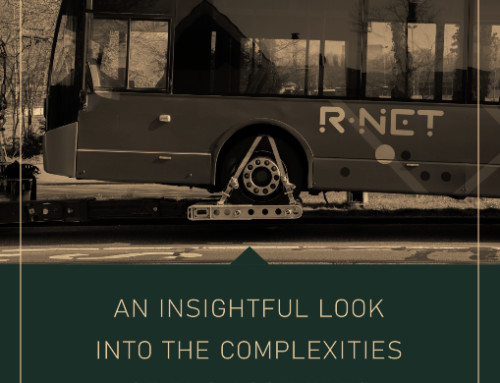What Causes Chest Pain After a Car Accident?
Getting into a car accident can be a frightening experience, and experiencing chest pain afterward can add to the distress. You should know several potential causes of chest pain after a car accident.
Impact of Seatbelts and Airbags
One common cause is the impact of seatbelts and airbags. While these safety features are designed to protect you, they can also lead to injuries. Seatbelt-related injuries may include bruising or discolorations around the chest area, mainly where the seatbelt rests against the body. Airbags, on the other hand, can cause injuries such as chest contusions or even fractures in more severe cases.
Musculoskeletal Injuries
Musculoskeletal injuries are also a common culprit. The force of the accident can result in rib fractures or bruised and strained muscles around the chest area. These injuries can cause significant pain and discomfort, making moving or breathing difficult. Another musculoskeletal condition that may cause chest pain is costochondritis, a cartilage inflammation that connects the ribs to the breastbone.
Internal Organ Injuries
In some cases, internal organ injuries can lead to chest pain. For example, cardiac discoloration occurs when the heart experiences a direct impact during the accident, leading to chest pain and potential complications. Pneumothorax, or a collapsed lung, is another serious condition that can result from the force of the accident, causing sharp chest pain and difficulty breathing. Aortic dissection, although rare, is a life-threatening condition where the inner layer of the aorta tears, leading to severe chest pain that radiates to the back.
Psychological Factors
It’s important to note that psychological factors can also contribute to chest pain after a car accident. Post-traumatic stress disorder (PTSD) can manifest as physical symptoms, including chest pain. Additionally, panic or anxiety attacks triggered by the accident can cause chest tightness and discomfort.
Understanding the various causes of chest pain after a car accident is crucial for seeking appropriate medical attention and receiving the necessary treatment. Remember, even if the chest pain seems mild, it’s always better to consult a healthcare professional to rule out any underlying severe injuries or conditions.
Should I seek medical help for chest pain after a car accident?”
Regarding chest pain after a car accident, it’s essential not to risk your health. So, should you seek medical help? Absolutely! Chest pain can be a sign of something serious, and it’s always better to err on the side of caution.
Even if the pain seems mild or disappears after a while, it’s still worth getting checked out by a medical professional. They have the expertise to assess your condition and determine if any underlying issues need attention.
I know it can be tempting to brush off the pain and hope it will go away alone. But here’s the thing: chest pain after a car accident could result from musculoskeletal injuries, internal organ damage, or even whiplash-associated problems. These are not things you want to ignore or self-diagnose.
In some cases, the pain may be a symptom of a more severe condition like a fractured rib, a heart contusion, or a collapsed lung. Proper diagnosis is vital to ensure you receive the right treatment and prevent potential complications.
Plus, watch for any accompanying symptoms that could be red flags. Don’t hesitate to seek immediate medical attention if you experience shortness of breath, dizziness, fainting, or chest pain.
How Long Does Chest Pain Last After a Car Accident?
The duration of chest pain after a car accident varies depending on the severity of the injury and the individual’s overall health and healing ability. Some people may experience mild chest pain for a few days, while others may have pain that lasts for several weeks or even months.
Broken or fractured ribs can take several weeks to heal, and the pain associated with them can last for a considerable amount of time. Lung injuries may take longer to heal, and the pain may persist for several months. Soft tissue injuries typically recover more quickly, although the recovery time can vary depending on the severity of the damage.
It is essential to follow any medical instructions provided by your healthcare provider and to attend scheduled follow-up appointments to monitor your progress and ensure adequate healing.
Self-Care Tips for Chest Pain After an Automobile Accident
In addition to seeking medical attention, several self-care tips can help manage chest pain after a car accident, including:
- Rest: Rest is essential for allowing the body to heal from injuries. Avoiding activities that could exacerbate chest pain or cause additional damage is necessary.
- Apply ice or heat: Applying ice or heat to the chest can help reduce pain and inflammation. Ice should be used for the first 48 hours after an injury, while heat can be used after the initial swelling has subsided.
- Use over-the-counter pain relievers: Over-the-counter pain medications such as ibuprofen or acetaminophen can help manage pain and reduce inflammation. Following the manufacturer’s instructions and avoiding exceeding the recommended dosage is essential.
- Practice deep breathing: Deep breathing exercises can help improve lung function and reduce the risk of complications, such as pneumonia. Take slow, deep breaths several times daily, focusing on expanding the chest on inhalation and relaxing exhalation.
- Follow-up appointments: Meet your healthcare provider regularly to monitor progress and ensure adequate healing. It is essential to report any new or worsening symptoms promptly.
Conclusion
Chest pain after a car accident is a common symptom with several potential causes, ranging from minor soft tissue injuries to life-threatening heart or lung injuries. Seek medical attention immediately if you experience chest pain after a car accident, as it may indicate severe damage or a medical condition. Follow any medical instructions and attend scheduled follow-up appointments to ensure adequate healing and prevent long-term complications. Most individuals can recover from chest pain after a car accident with proper medical care and self-care practices.


[…] Chest Injuries […]